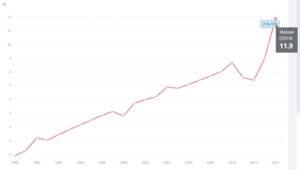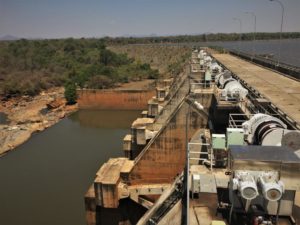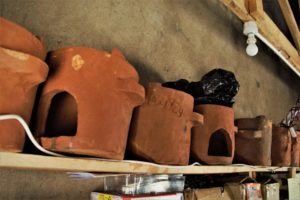
Malawi is among the least electrified countries in the world. Only 7-12% of the population are connected to the grid while the rural electrification rate remains below 2%.

In urban areas, power outages of up to 24 hours or more are not uncommon. The national utility Energy Supply Corporation of Malawi (ESCOM) needs to ration power supply by regular load-shedding as the maximum installed capacity of 351MW cannot feed an estimated energy demand of about 400MW. During the dry season the river beds are low and this reduces the water flow. Due to Malawi’s high dependency on hydro-power (almost 98% of the electricity is generated from the Shire river) the generation capacity sometimes even goes down to below 200MW.
Rural populations are almost entirely dependent on biofuels. Since grid connections and gas fuels are not affordable to most, a huge number of the rural families are left with no choice but to rely on firewood and charcoal for cooking. This puts excessive pressure on the already fast depleting forests, leading to environmental degradation and deforestation. However, as trees are part of the natural water cycle, these interruptions eventually have a direct impact on the water levels, hence on electricity generation.
In the end it is a recurring chain of problems which affects the economy, health and education as well as other social areas.
As Renew’N’Able Malawi we specialize on piloting innovative Renewable Energy technologies and approaches in order to find and inform best practices that mitigate these problems. For example; Our pilot field project Rural Off-Grid Energy Kiosks sell and rent out a variety of different size and brands of solar lamps and batteries to improve rural electrification. Since Malawi has great solar potential (an average of 3,000 hours of sunshine per year) the promotion of adoption of solar products is essential.

Our bio-energy advocacy project, Movement for Bio-energy Advocacy Utilisation Learning and Action (MBAULA) is advocating for the use of energy-efficient cookstoves. MBAULA has been actively coordinating the bio-energy sector and promoting the adoption and use of fuel-efficient cookstoves in Malawi.
Governmental institutions are now also realizing the tight correlation between energy and development. Several projects are currently in planning such as a 70MW solar power plant, power interconnection deals with neighbouring countries such as Mozambique and Zambia are at advanced stages.
Malawi is indeed fighting an energy crisis.
Read more about Energy Poverty and Economy